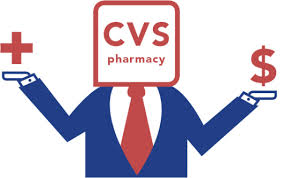Ryan recently blogged about the mayhem over releases of Jordan shoes. As he reports, similar headlines appear in a USA Today article; the entire story can be summarized with just a few words: Jordan shoe release, large crowd, fight, injury, etc. Basically, ever since the first release of Michael Jordan’s exuberant shoes, people have been waiting in line as you would on Black Friday. This is part of the hype that makes the Jordan brand so successful and well known; however, this is also where David Silver’s lecture and Milton Friedman’s paper come into play.

Photo from: The Herald
If you read his blog, Ryan obviously believes this is unethical of the Jordan brand to allow this to continue. I agree. I commented on Ryan’s blog, curious to see if he had any suggestions or ideas for them to stop this madness, while still keeping the hype of the shoes and being successful?
Trying to think of a solution, I remember what Dr. Silver said about CVS Pharmacy, and how they thought of a creative way to fix their problem of selling cigarettes. Similar to that, I believe Nike (Jordan’s owner) should continue to keep up the hype of the releases, but find a way to keep people from getting out of control while waiting in line. One way to do this, that I can quickly think of, would be to accept pre-orders from people. That way they’re still excited for the shoes, but they don’t get rowdy waiting in line, because they know they’re is a pair safely waiting for them!

